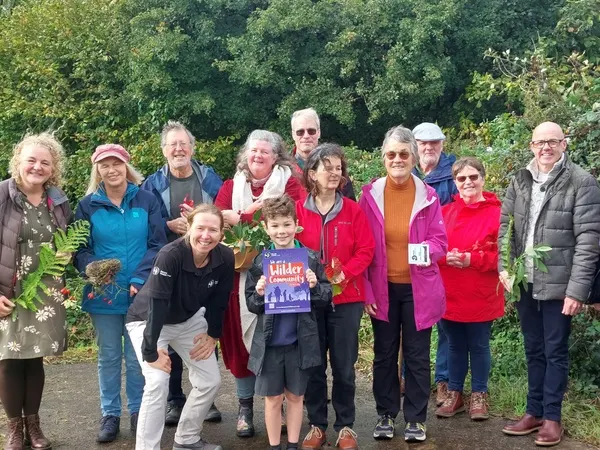The Devon Fritillary Recovery Project is the work of Devon Wildlife Trust. Its aim is to help struggling
populations of high brown, pearl-bordered, small pearl-bordered and marsh fritillary butterflies.
All have seen their populations shrink dramatically in recent decades due to changes in farming, loss of habitat and climate change. The high brown fritillary, for example, has seen its numbers crash by 96% and is now one of the UK's 'most threatened species'.
A winter of butterfly restoration work will now begin on land managed by Devon Wildlife Trust. Staff and volunteers will be working on 122 hectares – about the same size as 160 football pitches – across 12 of the charity's nature reserves. These include:
- Blackadon nature reserve, Dart Valley nature reserve, Emsworthy Mire and Dunsford nature reserve (Dartmoor)
- Teigngrace Meadow nature reserve (near Bovey Tracey)
- Marsland nature reserve (near Hartland)
- Dunsdon nature reserve, Meshaw Moor nature reserve, Vealand Farm nature reserve, Veilstone nature reserve and Volehouse Moor nature reserve (all near Holsworthy)
- Rackenford Moor nature reserve (near Tiverton)
Jenny Cawson is Devon Fritillary Recovery Project Officer. Jenny said:
"Devon Wildlife Trust's nature reserves offer some of the last homes to our struggling butterflies, so it's vital that we work hard to keep them in good condition. The launch of our Devon Fritillary Recovery Project signals the start of a huge effort to not only stabilise the populations of these rare species but to restore their numbers. Our goal is for their numbers to grow, and populations spread across the wider Devon countryside. The work we'll be able to do during this project will leave a positive legacy which will last for years to come."Key among the tasks for the charity will be to manage the levels of scrub and gorse across the 12 nature reserves. Helping staff and volunteers will be a new 'robo-flail' – a remote controlled machine which is able to venture into steep and difficult to get to corners of the Trust's wildlife havens.
"The robo-flail will prove an enormous help. It can go where it's unsafe or impossible for staff to go, especially on very steep slopes. Our aim is not to remove all bracken and gorse from our reserves, but to ensure that there's a better balance between scrubby and open areas. This is just what butterflies need to thrive."
Other parts of the project will see areas of wildflower-rich Culm grassland meadows restored, plus an extensive monitoring effort counting the numbers of butterflies from the four key fritillary species. These measurements will act as a check on the success of the project, monitoring their numbers over a series of summers.

.jpg)


.jpg)
.jpg)
